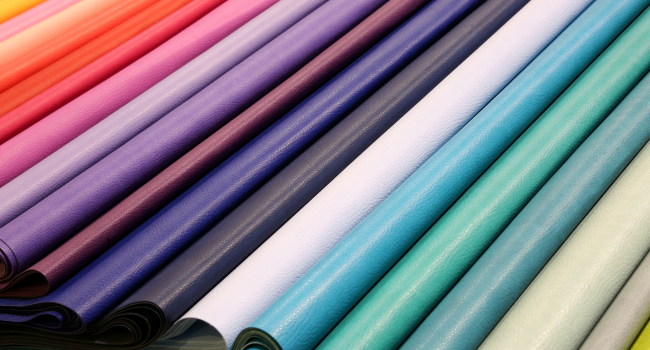Mobile high viscosity transfer pump for testing and production of bio-based leather
Mobile high viscosity transfer pump for the testing and production of bio-based leather alternative

In our latest case study, we are delving into the world of vegan leather – an innovative alternative to animal and plastic leathers which are more sustainable and have less impact on the environment.
Our designs and produces transformative, sustainable biomaterials like vegan leather from natural resources like collagen, herbal extracts, minerals and oils.
They approached us with a need for a mobile high viscosity transfer pump to help test and ramp up their production of these sustainable biomaterials.
A massive growth market
According to a 10-year market forecast by Cambridge-based tech analysts IDTechEx, the vegan bio-based leather industry will grow by around 37.4% from 2024 to 2034.
To put this in perspective, new technologies developed to create sustainable alternatives to animal and plastic leather have already attracted investment worth over $1 billion. In fact, IDTechEx has discovered over 70 companies worldwide who are bringing viable vegan leather products to market.
Most of these businesses have sprung up in the last 3 to 5 years, and range from small startups like our client, to businesses that have secured hundreds of millions of pounds in funding. They are using this to scale up their production of vegan shoes, boots, clothing, fashion accessories and many other innovative new products.
A range of bio-based leather alternatives
There are a surprisingly large number of these sustainable bio-based leather alternatives, ranging from mycelium made from fungi roots, and apple waste to bacteria and animal skin cells. They vary widely in durability, price, strength and appearance and include:
Piñatex, launched in 2016, is claimed to be the most sustainable vegan leather available on the market and is made from waste pineapple leaf fibre. It has been taken up by hundreds of vegan and sustainable fashion and global lifestyle brands like Paul Smith, Nike, Hugo Boss and H&M.
Mushroom leather is made from mycelium, the mushroom root structure. It is grown under controlled conditions and is biodegradable, versatile, soft and durable. New research is now looking at using spider silk proteins, instead of mycelium.
MIRUM, a bio-based vegan leather produced from plants and minerals. It is PVC and polyurethane-free, compostable and certified as 100% bio-based. Other manufacturers are making vegan leather from bananas, tea waste, grains, grapes, fallen leaves, temple flowers, sugarcane, and used barley from beer production.
Desserto, a vegan leather made from cacti. Unlike many vegan leather alternatives, this product doesn’t contain polyurethane or any kind of plastic.
Coconut leather, which comes from the fibres of the coconut husk. It’s a robust and sustainable alternative to animal leather.
Waxed cotton is an organic raw material used to make vegan leather alternatives. It is flexible, waterproof and washable.
Microbial leather is made using fermentation with microorganisms like bacteria, and food waste upcycling. In addition, researchers at Imperial College London have used bacteria to make a plastic-free vegan leather that dyes itself black during production!
Cultivated leather - this isn’t really a vegan leather alternative but is genuine animal leather grown from animal skin cells in bioreactors.
What did our client need?
Our start-up client got in touch asking for advice on the best way for them to begin process testing, production and small-scale manufacturing.
The beginning of any testing and prototyping process is full of risks and challenges. Carefully considered plans which look workable on computer screens can often have wildly different outcomes in the real world.
To assist with testing, they were looking for a high viscosity transfer pump which would above all be flexible. It would have to cope with a wide range of operational conditions which would be difficult to predict but could change rapidly during the initial phases.
The pump requirements
They needed a mobile high viscosity pump which would be domestic mains-powered and could handle high viscosity material at elevated temperatures. It should also easily manage solids, be simple to clean between batches and be able to run without fluid.
 (1)-24120521170083346.jpg)
Initially, the pump might run for just an hour a day. But over time this would increase to several times a day as batches were increased or more tests were carried out.
The mobile high viscosity pump would be handling a low shear, water-based material with viscosity over 35,000cst. It would be feeding a mixing vessel a few metres off the ground and drawing from a small 200L drum. The pump needed to transfer as much as possible from this drum without drawing in air or creating shear forces in the mixture.
The importance of mixing vessels in manufacturing
Mixing vessels, also known as mixer tanks, are vitally important in the manufacturing process because they enable the mixing of different ingredients to create a range of products.
It is a crucial stage in production as it can help manufacturers reduce production times, operational costs and energy usage, simplify waste treatment and meet government regulations and standards.
Additionally, pumps for mixing vessels are often specified in PTFE as they might have to handle a wide range of chemicals and fluids.
What’s PTFE?
Polytetrafluoroethylene or PTFE is a fluoropolymer that has a huge number of industrial applications.
It was discovered accidentally in 1938 by a DuPont engineer who was working on refrigeration. Thanks to its many properties that lucky discovery has spawned a whole industry. For example, one brand name for PTFE is Teflon®, which is famous for its non-stick and heat-resistant properties.
In addition, PTFE is:
Chemically inert, non-reactive and durable
Good at insulating
Hydrophobic and repels water
Non-wetting and facilitates self-cleaning
Non-flammable and corrosion resistant
Low friction
Effective across a wide range of temperatures
Has high resistance to electricity
What did we specify for this client?
At North Ridge Pumps, we’re not limited to choosing just one pump design.
As the UK’s biggest pump supplier with over 25 years in the industry, we are experts at providing engineered pumps for a vast range of applications. We use this specialist knowledge to deliver a tailor-made solution for each client, not a standard product picked off the shelf.
Most important of all, we choose the best pump for every project – with the lowest lifetime cost. For this project, we specified an FMP40 roller peristaltic pump close-coupled on a trolley with a 1.5Kw inverter suitable for use with a 230V single phase supply.
This set-up would be able to transfer the bio-based materials at a rate of 774 to 2735 litres per hour or 12.9 to 45 litres a minute. We made the pump connections from stainless steel so the unit was easy to clean. In addition, the reinforced textile inlay hose within the pump was made from natural rubber.





